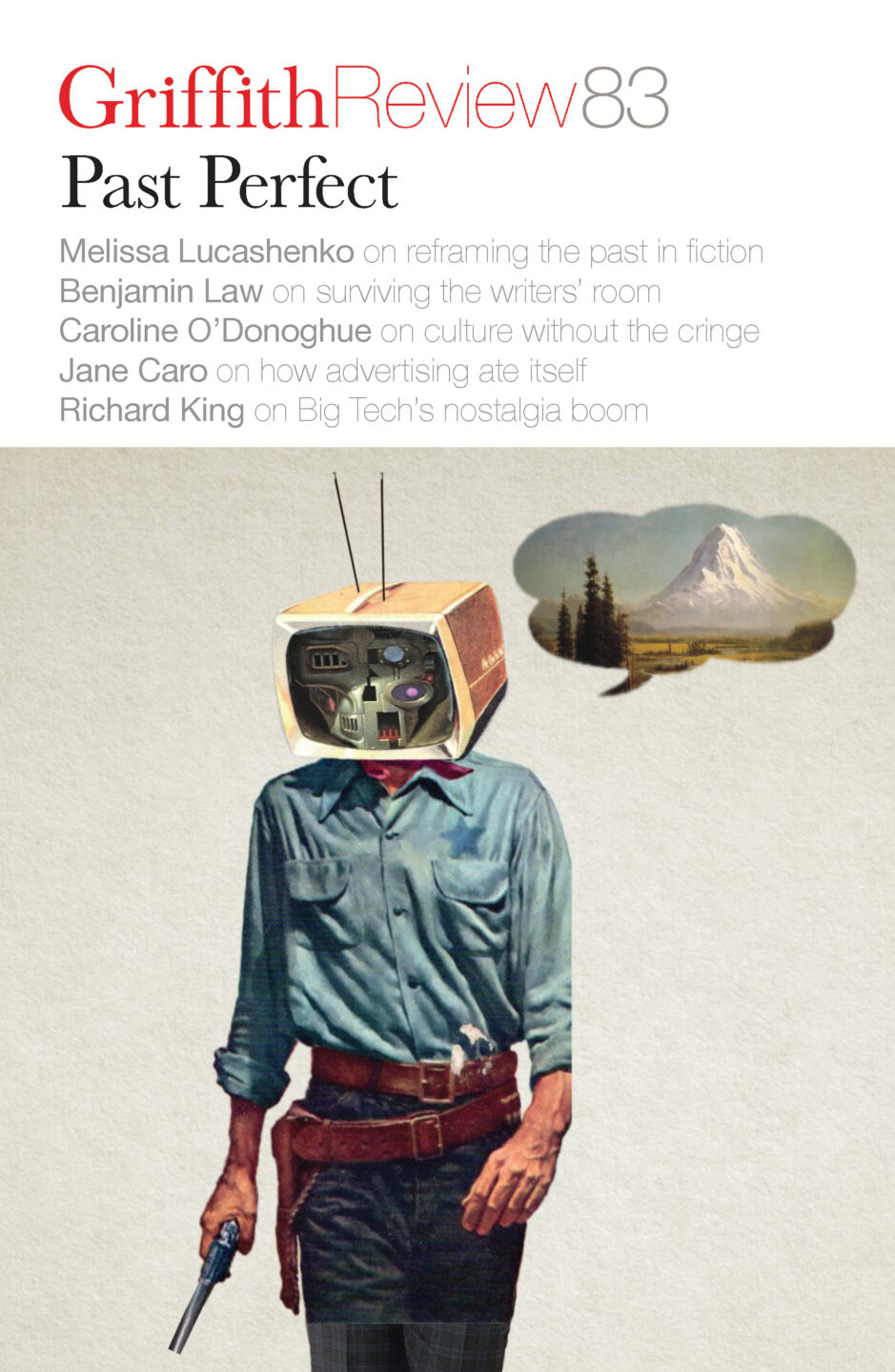Featured in

- Published 20240206
- ISBN: 978-1-922212-92-4
- Extent: 204pp
- Paperback, ePub, PDF, Kindle compatible

Already a subscriber? Sign in here
If you are an educator or student wishing to access content for study purposes please contact us at griffithreview@griffith.edu.au
Share article
About the author

Audrey Molloy
Audrey Molloy’s debut poetry collection, The Important Things (Gallery Books, 2021), received the Anne Elder Award and was shortlisted for the Seamus Heaney First...
More from this edition

The kiss
FictionThe name, when it came, sounded as if it had been uttered by somebody else. The man’s look shifted from one of mild affection to puzzlement. ‘Excuse me?’ He was still smiling, but it was a different kind of grin – the type of smile people offer a stranger who begs them for spare change.

The fall of the madmen
Non-fictionThe problem with a fear-based workplace – and indeed world – is that caution and compliance are not compatible with creativity. Creativity searches for the things that have never been done before, on which, by definition, there is as yet no data. Scott Nowell argues that the obsession with data has made us lose faith in our own instincts, so it’s not surprising that creativity is not valued the way it once was. And the source of creativity has shifted to the consumers themselves.

Nostalgia on demand
Non-fictionHow then do we approach a circumstance in which it is possible to consciously curate those memories and sense impressions, such that they become mere features of our ‘profile’? Or one where third parties, having gleaned enough data to know us better than we know ourselves, can supply those memories and impressions for us?